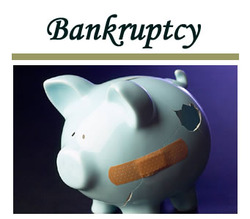If you are deciding whether you should file a Chapter 7 Bankruptcy or not, the first question that needs to be answered is do you qualify? Whether a person can file a Chapter 7 Bankruptcy almost entirely depends on their current income and household size. As of April 1, 2015, the current household size to income ratio is as follows:
| Household Size |
Yearly Income |
| One |
$42,718 |
| Two |
$52,421 |
| Three |
$57,977 |
| Four |
$67,539 |
| Five |
$75,639 |
| Six |
$83,739 |
To determine if you qualify for a Chapter 7 Bankruptcy use the following example: You are married with two minor children. This would be considered a household size of four. Your income must equal or be less than $67,539 in order to qualify for a Chapter 7 Bankruptcy.
If you make slightly more than the income allowed, you might still be able to qualify if you have certain types of expenses that can be deducted from your income. If you still make more than the income allowed and still need or want to file bankruptcy, you will have to file a Chapter 13 Bankruptcy. A Chapter 13 Bankruptcy is a reorganization of your debts instead of a strict liquidation as is the case with a Chapter 7 Bankruptcy.
 However, whether or not a Chapter 7 Bankruptcy is right for you is more than just a question of if you can qualify or not. If you have a lot of assets, you may want to stay clear of a Chapter 7. Any money sitting in a financial account that does not qualify for an exemption will be take from you by the Trustee and used to pay off your debts. This is also true for personal property and real property that is not your homestead. If you have lots of assets and still want to file bankruptcy and be able to keep them, a Chapter 13 Bankruptcy might be a better choice for you.
However, whether or not a Chapter 7 Bankruptcy is right for you is more than just a question of if you can qualify or not. If you have a lot of assets, you may want to stay clear of a Chapter 7. Any money sitting in a financial account that does not qualify for an exemption will be take from you by the Trustee and used to pay off your debts. This is also true for personal property and real property that is not your homestead. If you have lots of assets and still want to file bankruptcy and be able to keep them, a Chapter 13 Bankruptcy might be a better choice for you.
In other words, there are a lot of considerations to take in to account before deciding whether or not to file a Chapter 7 Bankruptcy. It is best to meet with a bankruptcy attorney who understands all ways you can qualify for a Chapter 7 and which assets may or may not be protected. The attorneys at the Law Office of David M. Goldman, PLLC are here to help you navigate the confusion that comes along with facing bankruptcy. Contact an attorney today by calling (904) 685-1200.
 Filing for Bankruptcy can be both a scary and exciting prospect that allows a person deep in debt to make a fresh financial start. However, bankruptcy isn’t always the right answer. Here are a few factors to consider when deciding if declaring bankruptcy is right for you.
Filing for Bankruptcy can be both a scary and exciting prospect that allows a person deep in debt to make a fresh financial start. However, bankruptcy isn’t always the right answer. Here are a few factors to consider when deciding if declaring bankruptcy is right for you. Jacksonville Bankruptcy Lawyer Blog
Jacksonville Bankruptcy Lawyer Blog







